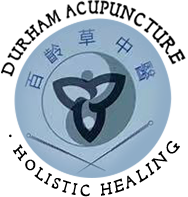With spring comes allergies, runny noses, frequent sneezes, even headaches, this is called allergic sinusitis, caused by the sensitinogen acting on the mucous membranes of the nasal cavity. You experience itching in the nose and eyes. watery nasal discharge and a stuffy nose.
Conventional medicine involves using a drug such as an antihistamine to reduce symptoms, but there are some side effects such as drowsiness and some people term effects. That’s why so many are looking to alternative medicines.
Natural herbal medicine uses pure raw herbs. This not only inhibits the allergic reaction, but also improves the immune function in of the body. This is why they are helpful, since people who have a low immune function tend to get allergy problems. When the body’s immune system gets stronger, sinusitis can be cleared up. For example, herbs like astragalus root (huang qi) and Chinese angelica root (dang gui) can improve the immune function. And, herbs like xanthium (cang er zi) and magnolia flower (xin yi hua) have an inhibition effect for the allergic reaction. The traditional Chinese Medicine has herbal formulas to rebuilt body immune system, and also good for other allergies like asthma.
Acupuncture may build up the immune system too. In a review (1) of published trials, researchers concluded that a total of 2365 participants, including 1126 as treatment group and 1239 as control group. Acupuncture treatment group exerted a significant reduction in nasal symptom scores, and ultimately point to the efficacy of acupuncture treatment in improving quality of life in allergic rhinitis (AR) patients. Acupuncture is now commonly used to treat everything from pain, stress, and nausea. Lesser-known uses, such as the treatment of allergies, are also gaining popularity. For allergic sinusitis, cupping and acupuncture combined together to enhance the treatment effect. Focus points are more on the back, some on the head and face.
When medication alone doesn’t keep your body in remission, it might be time to look into alternative or complementary therapy programs like acupuncture and Chinese herbs.
(1) Feng S, Han M, Fan Y, et al. Acupuncture for the treatment of allergic rhinitis: a systematic review and meta-analysis. Am J Rhinol Allergy. 2015;29(1):57-62. doi:10.2500/ajra.2015.29.4116

